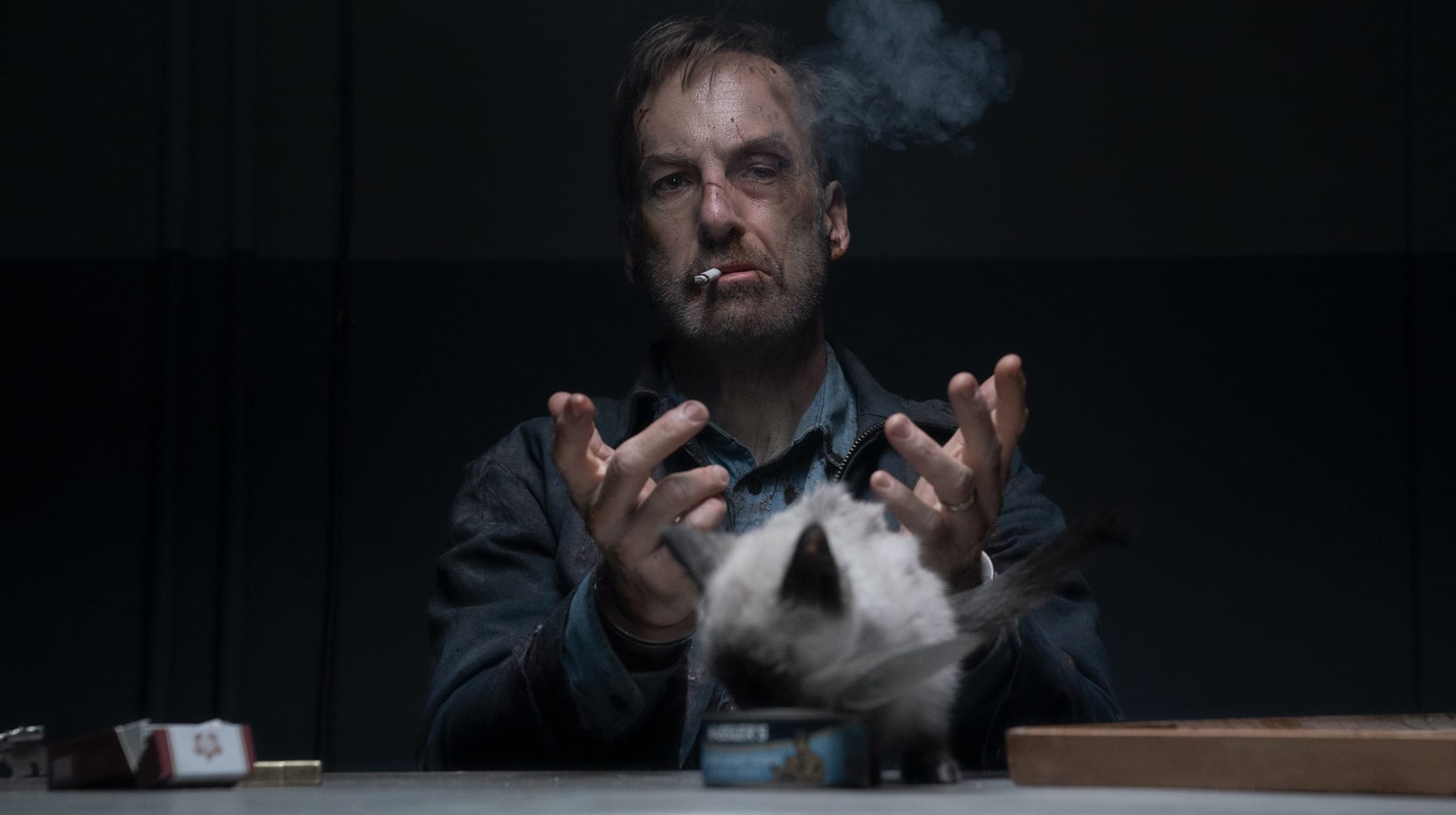We know Bob Odenkirk could do comedy from his work on Mr. Show. We know he could do drama, amply demonstrated by the character of Saul Goodman on Breaking Bad and Better Call Saul. But action star? You wouldn’t believe it till you see it. And having seen it, I’m certainly convinced. He’s not your typical ripped slab of beefcake like Dwayne Johnson or Jason Statham. Nor is he your surly old man like Liam Neeson or Bruce Willis. Odenkirk gives us the type of action star we haven’t seen in a long time: a man of genuine sensitivity combined with an absolute ruthlessness that brings to mind forces of Nature unleashed.
Meet Hutch Mansell, a man very much living the sort of life filled with quiet desperation Thoreau warned about. He’s married to a beautiful wife who barely touches him (Connie Nielsen, Gladiator), he has a good job working for his oafish father-in-law (Michael Ironside, Starship Troopers), he’s got a teenage son being an obnoxious teenager, and a middle school daughter who loves him to death but really wants a kitty cat for a pet. His life is a routine of morning runs, bus trips to work, missed garbage pickups, and bookkeeping. The only bright spots seem to be visiting his aging father in a nursing home (Christopher Lloyd, Back To The Future), listening to classic vinyl records, and talking over a radio setup with his mysterious adopted brother (RZA from Wu-Tang Clan).
But the routine gets permanently shaken up when a pair of small time burglars break into his house and make off with a few bucks. We get a glimpse of the man Hutch used to be in that robbery, and Hutch himself seems to realize he’s about to be making a mess before the burglars escape, stopping himself from escalating the incident. In the aftermath, the cops are condescending, his idiot neighbor is patronizing, his brother-in-law hands him a pistol in the most tooth-grindingly awful way possible, and his son is understandably pissed off that his own father didn’t try to fight back. It’s when Hutch goes hunting for the burglars that we begin to get the impression he’s not your typical suburban dad. Certain individuals seem to recognize a small tattoo on his wrist and give him the terrified deference one imagines Genghis Khan received from his Mongols. And when he finds the two burglars are living in a slum, trying to keep their infant child alive on an oxygen bottle, Hutch leaves them alive and unharmed, and deeply irritated with himself.

Luckily for him, Hutch gets the chance to vent that frustration on a pack of hoods who drunkenly crash their car, then board the bus he’s riding on. Despite taking a serious beating and one good knife wound in the side, Hutch puts the five goons in the hospital. Unfortunately, one of them is the little brother of Russian gangster and would-be impresario Yulian Kuznetsov (Alexy Serebryakov, The Petrichor). Kuznetsov is understandably upset that somebody mortally wounded his little brother, idiot though he might be. And babysitting the obschak, the Russian Mafia’s “retirement fund” of cash, isn’t exactly helping his mood. Kuznetsov decides to track down Hutch, courtesy of the bus pass he accidentally dropped during the fight, and express his displeasure. It’s a fatal decision which will lead up to one of the best final showdowns I’ve seen in ages. Because Kuznetsov has picked a fight with a retired “auditor,” a government agent who doesn’t officially exist and whose job is to correct sufficiently gross malfeasance with a bullet in the back of the head of the offending parties. And just because he left the job doesn’t mean Hutch left his toolkit behind.
It’s tempting to draw parallels to Nobody with John Wick, which is understandable given that Derek Kolstad wrote both films. But the tone is completely different. With John Wick, there’s a great deal of stylization and flash, almost a sense of glitz even in the violence. In the hands of Ilya Naishuller (Hardcore Henry), there’s no glitz, only a deadly economy of action. There are a few “tactical rolls” here and there, but more often than not, you see the characters using their surroundings and their knowledge of those surroundings to their advantage. People get injured or wounded and the damage looks realistic not simply for the blood, but for the way it impairs movement, while also hinting at the underlying training and experience of the characters with body trauma combined with the effects of adrenaline. Naishuller’s direction finds a comfortable middle ground between the long tracking shots of Chad Stahelski’s John Wick and the more frenetic rapid fire style of Michael Bay. It’s what you might have seen out of Sam Peckinpah if he dropped all the slo-mo shots.
But it’s also the quiet moments that set the two films apart. While John Wick dealt with a man’s loss which almost seemed to be another brick in the “Sad Keanu” meme wall, Nobody examines the efforts of a man trying to prevent a loss, or at least recover all the good things of the life he built that feel like they’ve been slipping away. Odenkirk delivers a stellar performance as Hutch, a man who wanted a nice simple life: the white picket fence, the wife, the 2.3 kids, the sort of domestic serenity he’d never seen or had before. He is a man who knows he’s capable of unbelievable violence, but he’s not an emotional cripple, nor does he seem to be in love with violence for its own sake. For him, it’s a calculated escalation. No scene exemplifies this better than the bus fight. He calmly clears the bystanders out of the way, then deliberately unloads the revolver in front of the goons, a subtle statement of intent and capability: “I could have blown your heads off at any time before this, but I’m just going to beat your asses instead. You’re not worth the bullets.” After the bus fight, as he’s getting patched up by his wife, Hutch talks to her about the state of their relationship. He doesn’t blame her for where they are, he doesn’t resort to emotional blackmail by mentioning how he could have been killed, certainly no threats. He just tells her he misses her, that he doesn’t like the emotional and physical barriers separating them in the home they have built together, and he would like those barriers to be lowered. It’s the sort of scene you don’t see much in an action movie.

If there’s any complaint with Nobody, it’s the sense that there’s a lot of pieces missing which shouldn’t be. Granted, this might be just a ploy to get people hooked for the inevitable “unrated” cut of the movie, but a few minutes here and there going into more about the characters’ backgrounds would have been totally worth it. Crazy as it may sound, this is a movie which really could use a couple more flashbacks. On the other hand, the short post-credits scene suggests that there’s plenty of potential for sequels which might go into more detail later. Aside from that, there’s the usual small goofs like showing a 9mm pistol which is supposed to be a .45, or using liter references for engine displacement in cars which are typically expressed in cubic inches. They’re not enjoyment breaking, but noticeable all the same.
Nobody is very much a reflection of its protagonist. You may not go into it expecting very much, but by the end, you’ll be amazed at what you just went through.

